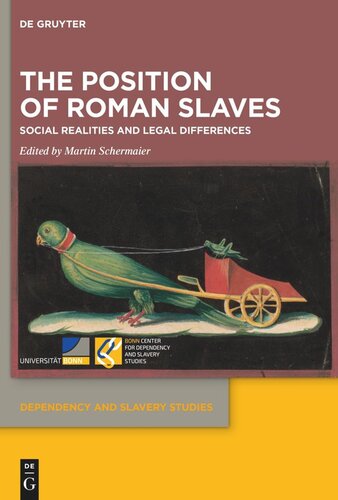

Most ebook files are in PDF format, so you can easily read them using various software such as Foxit Reader or directly on the Google Chrome browser.
Some ebook files are released by publishers in other formats such as .awz, .mobi, .epub, .fb2, etc. You may need to install specific software to read these formats on mobile/PC, such as Calibre.
Please read the tutorial at this link: https://ebookbell.com/faq
We offer FREE conversion to the popular formats you request; however, this may take some time. Therefore, right after payment, please email us, and we will try to provide the service as quickly as possible.
For some exceptional file formats or broken links (if any), please refrain from opening any disputes. Instead, email us first, and we will try to assist within a maximum of 6 hours.
EbookBell Team

0.0
0 reviewsOpen Access
Slaves were property of their dominus, objects rather than persons, without rights: These are some components of our basic knowledge about Roman slavery. But Roman slavery was more diverse than we might assume from the standard wording about servile legal status. Numerous inscriptions as well as literary and legal sources reveal clear differences in the social structure of Roman slavery. There were numerous groups and professions who shared the status of being unfree while inhabiting very different worlds.
The papers in this volume pose the question of whether and how legal texts reflected such social differences within the Roman servile community. Did the legal system reinscribe social differences, and if so, in what shape? Were exceptions created only in individual cases, or did the legal system generate privileges for particular groups of slaves? Did it reinforce and even promote social differentiation? All papers probe neuralgic points that are apt to challenge the homogeneous image of Roman slave law. They show that this law was a good deal more colourful than historical research has so far assumed. The authors’ primary concern is to make this legal diversity accessible to historical scholarship.